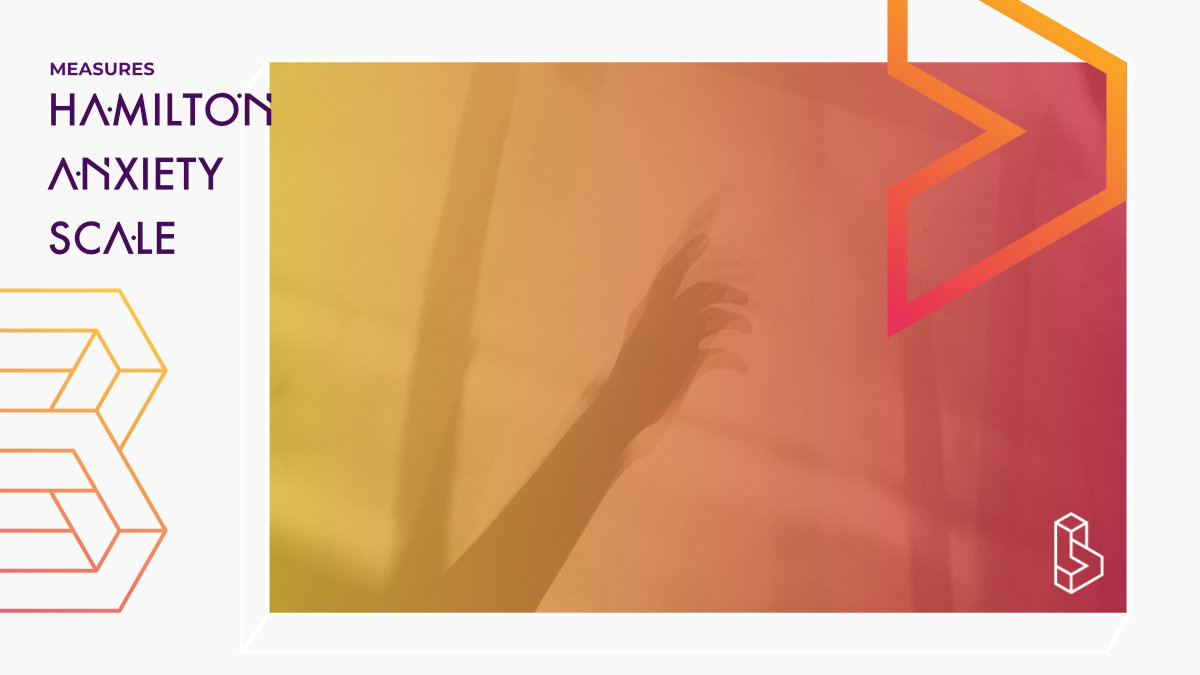The Hamilton Anxiety Scale (HAM-A) was one of the first rating scales developed to measure the severity of anxiety symptoms and is still widely used today in both clinical and research settings.
The scale consists of 14 items, each defined by a series of symptoms, and measures both psychic anxiety (mental agitation and psychological distress) and somatic anxiety (physical complaints related to anxiety).
Each item is scored on a scale of 0 (not present) to 4 (severe), with a total score range of 0–56, where <17 indicates mild severity, 18–24 mild to moderate severity and 25–30 moderate to severe.
Active? Yes
First used: 01 January 1970
Related Trials
Continuation Ketamine in Major DepressionAs of May 21st, 2012, the purpose of this study is to test the antidepressant effect of ketamine when given repeatedly over a period of 1 week, as well as the use of Lithium as a relapse-prevention strategy for patients with treatment-resistant depression (TRD) who respond to an initial series of ketamine infusions.
Esketamine Adjuvant Therapy for Patients With Chronic Visceral Pain Comorbid Major Depressive Disorder
Therefore, this study aims to explore the difference in the efficacy and safety of esketamine as an adjuvant therapy and positive control drug-pregabalin in patients with chronic visceral pain comorbid depression.
Examining the Impact of Sirolimus on Ketamine's Antidepressant Effects
The aim of the study is to provide insight into the impact of the immunosuppressant drug sirolimus, on the antidepressant effects of the prototypal rapid-acting antidepressant medication, ketamine.
Ketamine Plus Lithium in Treatment-Resistant Depression
The purpose of this study is to test the antidepressant effect of ketamine when given repeatedly over a period of 1 week, as well as the use of Lithium as a relapse-prevention strategy for patients with treatment-resistant depression (TRD) who respond to an initial series of ketamine infusions.
MDMA-assisted Therapy in People With Anxiety Related to Advanced Stage Cancer
This is a pilot study intended to find out if 3,4-methylenedioxymethamphetamine (MDMA) is safe and can help people with advanced stage cancer and anxiety arising from the cancer diagnosis.
NMDA Antagonists in Bipolar Depression
The purpose of this study is to test whether ketamine and D-cycloserine can be safely and effectively used for the treatment of depression. The investigators hypothesize that ketamine will serve as a rapid acting and safe antidepressant in patients with bipolar depression, and furthermore, that D-cycloserine will serve as an effective therapy following ketamine treatment.
Psilocybin Cancer Anxiety Study
The primary objective of this double-blind, placebo-controlled pilot study is to assess the efficacy of psilocybin administration (4-phosphoryloxy-N,N-dimethyltryptamine), a serotonergic psychoactive agent, on psychosocial distress, with the specific primary outcome variable being anxiety associated with cancer. Secondary outcome measures will look at the effect of psilocybin on symptoms of pain perception, depression, existential/psychospiritual distress, attitudes towards disease progression and death, quality of life, and spiritual/mystical states of consciousness.
Psilocybin-Assisted Psychotherapy for Anxiety in People With Stage IV Melanoma
This study is to find out about whether two sessions of psilocybin-assisted psychotherapy are safe and will help people who are anxious as a result of having stage IV melanoma and will involve two sessions of psychotherapy combined with either 4 or 25 mg psilocybin.
Psychopharmacology of Psilocybin in Cancer Patients
This research is being done to study the psychological effects of psilocybin in cancer patients. Psilocybin is a naturally occurring substance found in some mushrooms that some cultures have used for centuries in religious practices.

